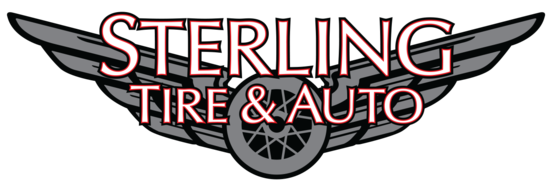Out of Joint (CV Joint and Boot Replacement)
August 4, 2024
If you have a front-wheel-drive vehicle, it has components called CV joints which enable you to turn your wheels smoothly. The CV stands for “constant velocity.” In essence, it’s a set of gears that connect a shaft that allows power from the transmission to be sent to the wheels. When you turn the wheels, no matter what angle, the input velocity rotation will be equal to the output. Thus, the name, CV (constant velocity) joint. Other vehicles with 4-wheel drive and all-wheel drive also use CV joints.
If one of your CV joints isn’t working right, you may find your vehicle difficult to handle. If one breaks, your vehicle may stop moving. So, it’s important that CV joints be in top working condition. The joints need a lot of lubrication, so they are surrounded by grease. There’s a rubber enclosure around them called the boot which holds the grease in and protects CV joints from the elements.
The biggest problems come when one of those rubber boots cracks. Water and dirt can then get into the joint, causing it to wear down and lose all its vital lubrication. It’s important to have your CV joints inspected regularly so a technician can spot cracks before the CV joints are ruined. Sometimes just the boot can be replaced before any major damage is done. But when the joint does go bad, it must be replaced.
Signs your CV joint needs changing out? You might hear a clicking sound when you turn if the CV joint is worn out. You might notice some thick, black grease around your wheel or on the pavement where you park your vehicle. You might also feel your vehicle vibrate when you’re going fast.
If you suspect you might have a bad CV joint, bring your vehicle in so a technician can determine what’s going on. Keep your CV joints in good shape and reduce the risk of them seizing up at an inopportune time so you can avoid being stranded.
Sterling Tire & Auto
34701 Van Dyke Rd
Sterling Heights, Michigan 48312
586-264-7775
Need Service?
More articles from Sterling Tire & Auto

Go with the Flow (MAF Sensor Replacement)
February 8, 2026
If your vehicle has an internal combustion engine, it depends on two things to make propulsion power for you to be able to motor on down the road: fuel and air. The engine mixes the two in just the right proportion so that they can be ignited, creating a series of tiny explosions that are coordi... More

10 Things That Are Lowering Your Fuel Economy
February 1, 2026
Regardless of whatever current gas prices may be, if you could use less gas, wouldnt you? Well, here are 10 things that are robbing you of better fuel economy that you can change for the better: Not enough air in your tires. Underinflated tires have a smaller rolling diameter and more res... More

Losing Your Cool (Why is My Air Conditioning System Not Working?)
January 25, 2026
When you turn on the air conditioning in your vehicle, you expect cool air to come out of the vents. You depend on it, especially in hot weather, but it can also be important in humid weather when you need it to help defrost your windows and windshield. The air conditioning system has a lot of p... More








